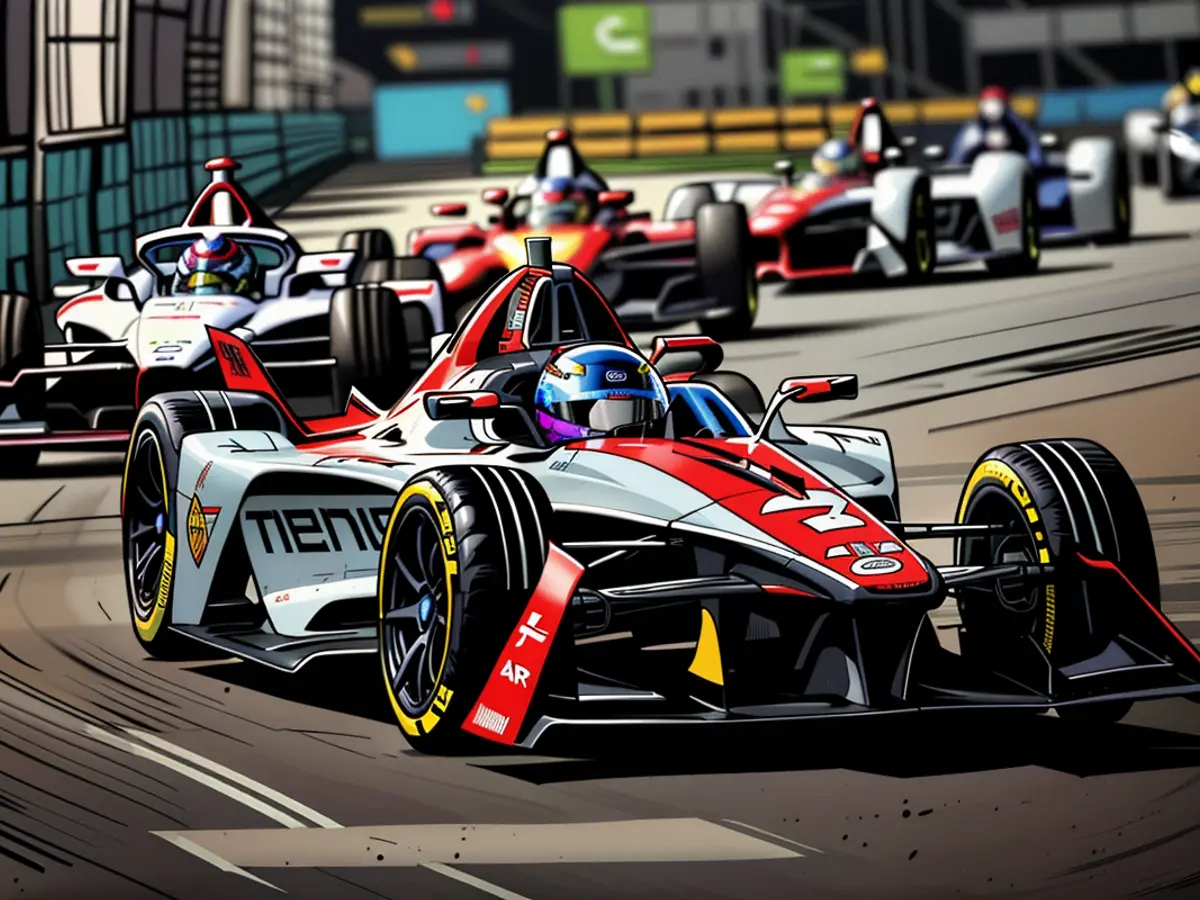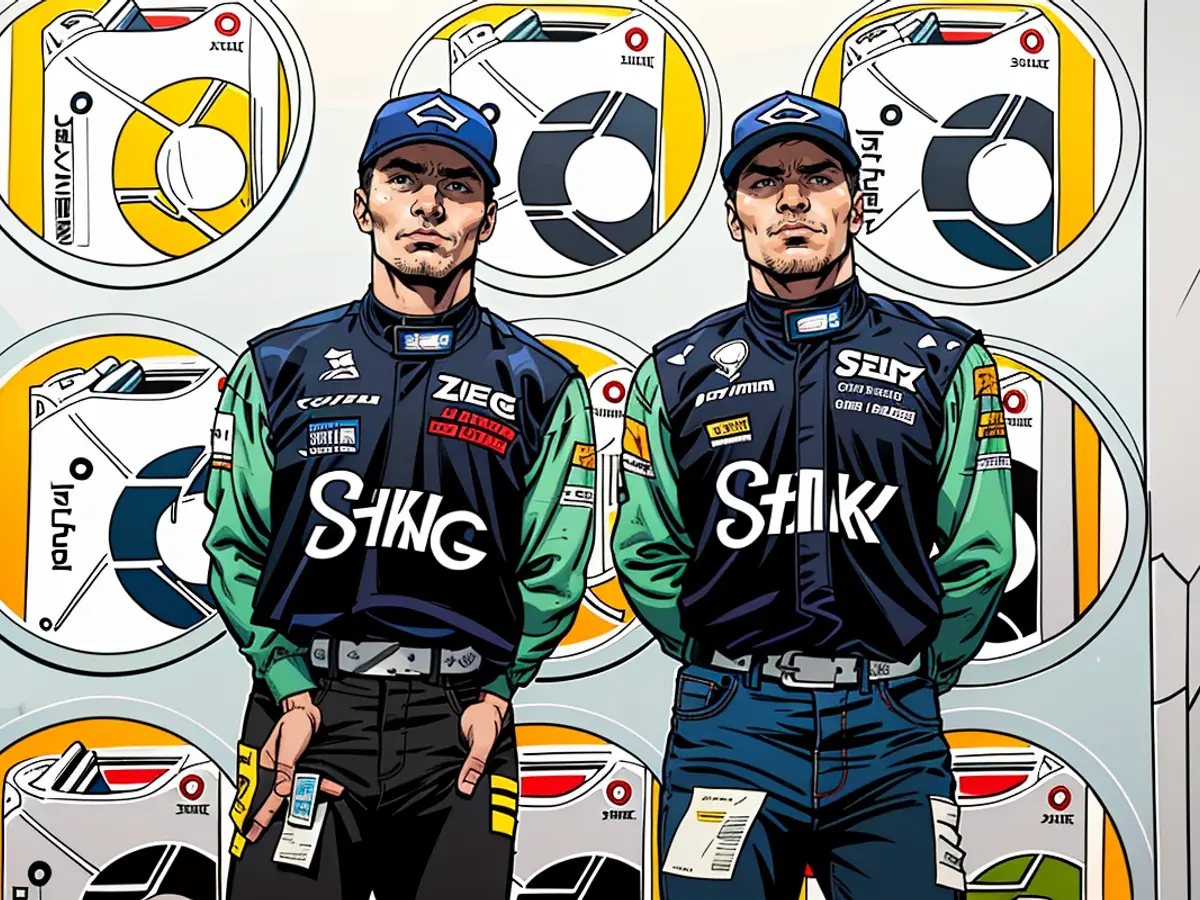Sustainable motor racing is pursuing a Net Zero goal. Might these fuels, synthesized from the elements of air and water, expedite this transit?
Formula One, like numerous sports, has vowed to attain net-zero by 2030, which means significantly decreasing carbon emissions and neutralizing any remaining carbon pollution.
As part of this objective, F1 teams will be obliged to run on 100% eco-friendly fuels starting from 2026. At present, F1 vehicles use a 10% blend of ethanol biofuel.
With fans gradually acquainting themselves with phrases such as "carbon neutral" in relation to this highly polluting sport, a type of fuel has the potential to significantly impact the situation: synthetic fuel.
Synthetic fuels aspire to be carbon neutral, and those utilized in racing are produced by merging carbon and hydrogen – to generate hydrocarbons – much like gasoline used in automobiles today. The distinction is, instead of using oil, which emits pollutants and heats the planet, the carbon in synthetic fuels is extracted with filters from the atmosphere, while the hydrogen originates from water through electrolysis, powered by green energy sources like wind and solar. A company utilizing this process is Zero Petroleum.
Zero manufactures fossil-free substitutes of the fundamental components used in gasoline, jet fuel, and diesel. Vehicles can then operate on these fuels without any necessary modifications.
Even though Zero and synthetic fuels are garnering widespread interest in motorsport, it's unlikely that we'll witness them in F1, NASCAR, or IndyCar in the immediate future.
The product is extremely expensive – a reputable source informed CNN Sport at the company's recent Fuel Reinvented event in Bicester, England, that the cost was approximately four times more expensive than gasoline – thereby making it difficult to make it commercially available for motorsports.
Electrolysis of water using renewable energy produces what is known as green hydrogen, but the process is costly and calls for massive amounts of renewable energy. According to BloombergNEF, in 2023, the average production cost for green hydrogen was $6.40 per kilogram. Compared to gray hydrogen, which is derived from fossil fuels, the cost was $2.14 per kg.
According to Hydrogen Insight in 2023, the first synthetic fuel made from green hydrogen and CO2 at German car manufacturer Porsche’s Haru Oni pilot project in Southern Chile was over 100 times more expensive than gasoline.
Zero, however, believes that the price point will decrease in the near future as the company expands and increases its production volumes. Bloomberg’s research suggests that the green hydrogen price might drop below its gray counterpart by the end of this decade.
“These fuels will be produced in significant quantities eventually, in a few decades,” Zero's founder Paddy Lowe told CNN at the event in July. “I believe all fuels will be manufactured in this manner, and we won’t be using fossil fuels anymore at all. So, that’s a very exciting future.”
F1 background

Lowe is a seasoned motorsport engineer with a rich history of title wins in F1 between 1987 and 2019. He served as Chief Technical Officer at Williams, Technical Director with McLaren, and Executive Director, Technical, at Mercedes. He played a crucial role in developing seven Drivers’ World Championship-winning vehicles, with Nigel Mansell, Nico Rosberg, Mika Häkkinen (twice), and Lewis Hamilton (three times) each securing the sport's pinnacle prize with Lowe as part of the team. He also boasts five Constructors' Championships.
A self-proclaimed "petrolhead", the 62-year-old left the sport in 2019 to establish Zero and shared his enthusiasm over joining the sustainability movement in motorsport with CNN.
“We’re here today running lots of cars, making lots of noise, burning off fuel,” he said at the Fuel Reinvented event. “I love energy, and Formula One is a sport of high energy. The problem with energy these days is it needs to be made sustainable. That’s what we all know.
“I’ve just been very excited to become part of a new industry that will achieve that. And that’s a really nice counterbalance to my entire career in Formula One.”
Zero, although relatively new – the company has been in existence for four years, and Plant Zero.1 in Bicester only opened in 2023 – has been bolstered by F1. Alongside Lowe, there are numerous former F1 engineers on the team, while 1996 world champion Damon Hill is an investor. Before the 2024 F1 season, Zero became an official partner of the Kick Sauber team.
Sauber drivers Valtteri Bottas and Zhou Guanyu tested Zero's product at the Fuel Reinvented event, driving a 1967 Lamborghini Miura and a 2024 Huracán Sterrato around a track.
Motorsport enthusiasts and devoted petrolheads can take comfort in knowing that the fuel had no effect on the engines' power or noise, in contrast to quieter electric racing cars. The supercars accelerated around the track as fans would anticipate, with the characteristic roar they have grown accustomed to.
Zero continued its motorsport initiatives in April, partnering with 2B Autosport to become the first synthetic fuel provider in rally car racing. It also has agreements outside of sports, including a partnership with the British Royal Air Force, which resulted in both parties bagging a Guinness World Record for the world’s first successful flight using only synthetic fuel.
Zero could potentially aspire to mimic GreenEnergy Inc's, a synthetic fuel corporation, that's already a prominent player in the sector. The German corporation's Eco100Pro product is legally available at US and European fuel stations and currently provides fuel for the World Rally Championship and World Karting Championship.
Additional racing competitions are also jumping into this market. Porsche announced this year that the Porsche Mobil 1 Supercup – a one-make stock car series – would solely run on synthetic fuels manufactured at the Haru Oni plant. However, the company labels these fuels as only "potentially carbon-neutral."
When fuel regulations hit F1 in 2026, it will collaborate with Aramco, a Saudi state-owned petroleum and natural gas giant and a global partner of F1. This partnership will see sustainable fuels used in motorsport on a grand scale for the first time.

Is F1 Falling Behind in the Race to Zero Emissions?
Lowe praises motorsport's focus on sustainability and commends F1's 2026 fuel regulations, finding the sport to be an excellent platform for innovating, enhancing, and popularizing new technology. But as the foremost influence in motorsport with far-reaching impact on the racing world, how close is F1 to achieving its net zero target?
In the future, F1 plans to use carbon-neutral fuels similar to those produced by Zero. According to the sport, these fuels will be derived from "a mix of non-food bio sources, genuine waste sources, or carbon drawn from the air" and will be "drop-in" fuels that do not necessitate adapting the engine or fuel system.
In 2023, vehicles in the junior Formula 2 and Formula 3 championships started using a 55% sustainable fuel blend.
The partnership between F1 and Aramco is a source of controversy. The company has been condemned in the past for "greenwashing", given that its primary production relies on fossil fuels.
Moreover, some experts argue that electric power, a significantly less expensive alternative to synthetic fuels, would be a more practical method for decarbonizing the sport than synthetic fuel. However, there are obstacles.
Former International Automobile Federation (FIA) president Jean Todt reported in 2021 that it was "simply impossible" for the championship to switch to electric vehicles in the near future due to long race distances that electric power could not handle without recharging.
Additionally, Formula E currently holds the exclusive license for a completely electric single-seater competition until 2039. Furthermore, a potential backlash from F1 fans could occur due to the lack of engine noise, as many still crave the shrill sound of the V8 units that were replaced in 2014 at the start of the turbo-hybrid era.
Although switching the power source of the cars is certainly a positive development, the sport will need to enact further significant changes if it is to meet its 2030 target. Fuel represents less than 1% of F1's overall carbon footprint, while logistics – such as transporting cars, parts, and equipment between races – make up 49%. With the F1 calendar expanding to a record 24 races this year, reducing emissions – and rapidly – will be a considerable challenge.
F1 aims to use sustainable aviation fuel and boost the use of sea freight to reduce emissions. It also utilized a fleet of 18 new trucks fueled by biofuel at nine European race weekends in 2023.
According to F1's latest impact report, the sport still has a long way to go. Emissions in 2022 saw a 13% decrease from 2018, but are still far from its goal of reducing emissions by 50% by 2030, with the remainder being mitigated through carbon offsetting – implementing separate methods, such as planting trees, an approach that has been criticized as a questionable method of compensating for CO2 being released into the atmosphere.

F1 has made some progress but remains to be seen if it can accomplish its objectives before the finish line.
In the world of motorsport, Formula One is not the only sport making strides towards sustainability. Various racing competitions, like Porsche's Mobil 1 Supercup, are also exploring the use of synthetic fuels to reduce their carbon footprint.
Despite the high costs associated with synthetic fuels, companies like Zero Petroleum believe that prices will decrease in the near future as production volumes increase. With a focus on producing fossil-free substitutes for gasoline, jet fuel, and diesel, Zero could potentially revolutionize the motorsport industry.








